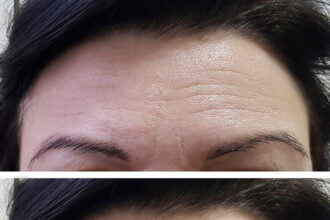 Blood disorders, including cancers like leukemia, often begin in the bone marrow where blood cells are produced, and from there the blood’s ability to properly perform some of its functions, such as fighting off infections, is thwarted.
Blood disorders, including cancers like leukemia, often begin in the bone marrow where blood cells are produced, and from there the blood’s ability to properly perform some of its functions, such as fighting off infections, is thwarted.
 Blood disorders, including cancers like leukemia, often begin in the bone marrow where blood cells are produced, and from there the blood’s ability to properly perform some of its functions, such as fighting off infections, is thwarted. Now, at the American Society of Hematology (ASH) annual meeting this past weekend, scientists have begun to offer evidence that experimental genetic therapies — precision medicines — may be effective and safe for treating blood disorder patients who fail to respond to standard treatments.
Blood disorders, including cancers like leukemia, often begin in the bone marrow where blood cells are produced, and from there the blood’s ability to properly perform some of its functions, such as fighting off infections, is thwarted. Now, at the American Society of Hematology (ASH) annual meeting this past weekend, scientists have begun to offer evidence that experimental genetic therapies — precision medicines — may be effective and safe for treating blood disorder patients who fail to respond to standard treatments.
“It’s exciting to see these encouraging initial results with engineered immune cells, particularly such a durable response among patients who have very aggressive disease that has relapsed after standard treatments,” Dr. Laurence Cooper, of The University of Texas MD Anderson Cancer Center in Houston, stated in a press release. “With the right technology and laboratory expertise, the process of cell engineering is feasible for many patients.”
Precision Medicine
Precision medicine, also referred to as personalized medicine, is all about creating treatments tailored to an individual patient. This can be accomplished by first establishing a patient’s genetic profile and medical history, then examining those against existing clinical data to find appropriate disease targets, and finally engineering a cell therapy that can properly attack the origin of disease. Complicated? Wildly so, but this complex process represents the many and combined advancements in human genome studies, chemistry, technology, data-mining techniques, medicine — in short, all of science until now.
In particular, genetic therapies use DNA itself as a pharmaceutical agent. DNA is made up of nucleic acids, which are large biological molecules that may be catalyzed or activated by proteins. Commonly, genetic therapy will attempt to replace mutated genes with therapeutic genes introduced via a vector, which is able to penetrate a target cell and insert the genetic material into it. Once inside, the newly introduced DNA becomes expressed by the cell machinery, which in turn produces therapeutic proteins that target the disease — in short, a patient’s own re-engineered cells become soldiers in the war. Newer drugs that more precisely target pathways and proteins known to trigger CLL development, and leave normal cells unharmed, are proving to be more effective in promoting cancer cell death while safer for the patient.
In terms of blood disorders, stem cells contained within the bone marrow develop into three types of blood cells: red blood cells, white blood cells, or platelets. In blood cancers, the development process is interrupted by uncontrolled growth of an abnormal type of blood cell. In particular, chronic lymphocytic leukemia (CLL) occurs when abnormal white blood cells called lymphocytes accumulate in the blood, bone marrow, and lymph nodes, or other organs, causing these organs to enlarge. Although many patients with newly diagnosed blood disorders respond well to standard treatment, more than half of patients do not benefit from such therapies or experience a relapse after completing treatmentSeveral new, targeted therapies show promise to expand treatment options for CLL patients, as presented at the ASH conference.
Presentation of Studies
In cell therapy trials conducted at the Children’s Hospital of Philadelphia and the University of Pennsylvania, researchers used the chimeric antigen receptor (CAR) approach to manipulate the T cells — a type of lymphocyte — of 22 children and five adults with relapsed, treatment-resistant acute lymphocytic leukemia. After treatment with their own cells that had been re-engineered to seek, attack, and kill leukemic cells, 24 patients (19 children, five adults) achieved a complete response. One patient has remained in remission for a year and showed detectable engineered cells at 18 months post-infusion; unfortunately, six patients (five children, one adult) have since relapsed.
Another study concentrated on an experimental small molecule inhibitor designed to block the activity of a certain enzymes known as PI3K responsible for CLL cell signaling. Researchers enrolled 193 patients (average age 67), including 52 CLL patients with treatment–resistant or relapsed disease and 15 untreated CLL patients, in a Phase I trial testing dosage strengths from 8mg to 75mg. Researchers administered the new compound twice a day in 28–day cycles and observed clinical activity in relapsed or treatment–resistant patients at all doses studied. The experimental drug demonstrated activity in approximately half of the patients with a mutated form of a tumor suppressor gene (p53) that makes their cancer particularly hard to treat.
In one other trial conducted by the National Cancer Institute, 15 adult patients were treated with CAR-expressing T cells that targeted CD19, a protein on the surface of B cells (one type of white blood cell). All of the patients had advanced B cell malignancies, and eight had large B cell lymphomas. Working with a Los Angeles biotech firm, Kite Pharma Inc., the investigators infused all 15 patients with their own genetically-modified T cells following a chemotherapy conditioning regimen of cyclophosphamide and fludarabine. “They’ve had every treatment known to man,” study author Dr. James Kochenderfer of the National Cancer Institute, told CBS News. Nevertheless, the results of the trial were extremely encouraging; six patients achieved complete remission and six achieved partial remission.
“Our data provide the first true glimpse of the potential of this approach in patients with aggressive lymphomas that, until this point, were virtually untreatable,” Kochenderfer stated in a press release. “This approach is still an early-stage experimental therapy, and we will continue our research to further improve the protocol and evaluate its value in additional patients with treatment-resistant disease.” Abstracts of these and many other studies appear on the ASH website.
(shutterstock)








